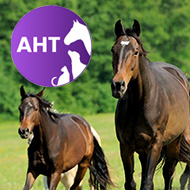AHT announces proposal to close referral clinics

"We must make difficult decisions to create a possible future for the AHT" - Steve Shore, AHT Trustee.
The Animal Health Trust (AHT) has announced a proposal to close its small animal and equine referral clinics in a bid to secure its future success.
In March 2020, the charity announced that it was facing closure following a period of 'dire financial constraint' and with the economic impact of COVID-19 having a direct effect on funding and operations. Since then, the Trustees and Executive Committee have been working to save the unique work undertaken at the Trust.
In its latest update, the AHT said that if the charity is to continue, the 'only viable option is for it to revert to its core purpose of providing world-renowned veterinary and scientific research'. As a result, and subject to consideration, the Trustees are proposing to close the AHT’s small animal and equine referral clinics.
AHT Trustee Steve Shore explains: “The work at the Animal Health Trust is truly unique and being told that the referral clinics could be closing and there is no longer a job for you is a terrible prospect and especially difficult for our teams of dedicated vets, nurses and support staff all of whom take so much pride and care in looking after their patients and owners. But we must make difficult decisions to create a possible future for the AHT.
“We also need to do this right, which means we will work closely with our employees and representatives, as appropriate and going through a formal consultation process with everyone affected.
He continued: “The Animal Health Trust was founded nearly 80 years ago by Dr W Reg Wooldridge who wanted the charity to promote veterinary research and prevent suffering in companion animals. The Trustees believe in making this difficult decision the AHT will continue to have this vision at its heart and will give it the best chance of future success.”



 The Animal and Plant Health Agency (APHA) has updated its online reporting service for dead wild birds.
The Animal and Plant Health Agency (APHA) has updated its online reporting service for dead wild birds.